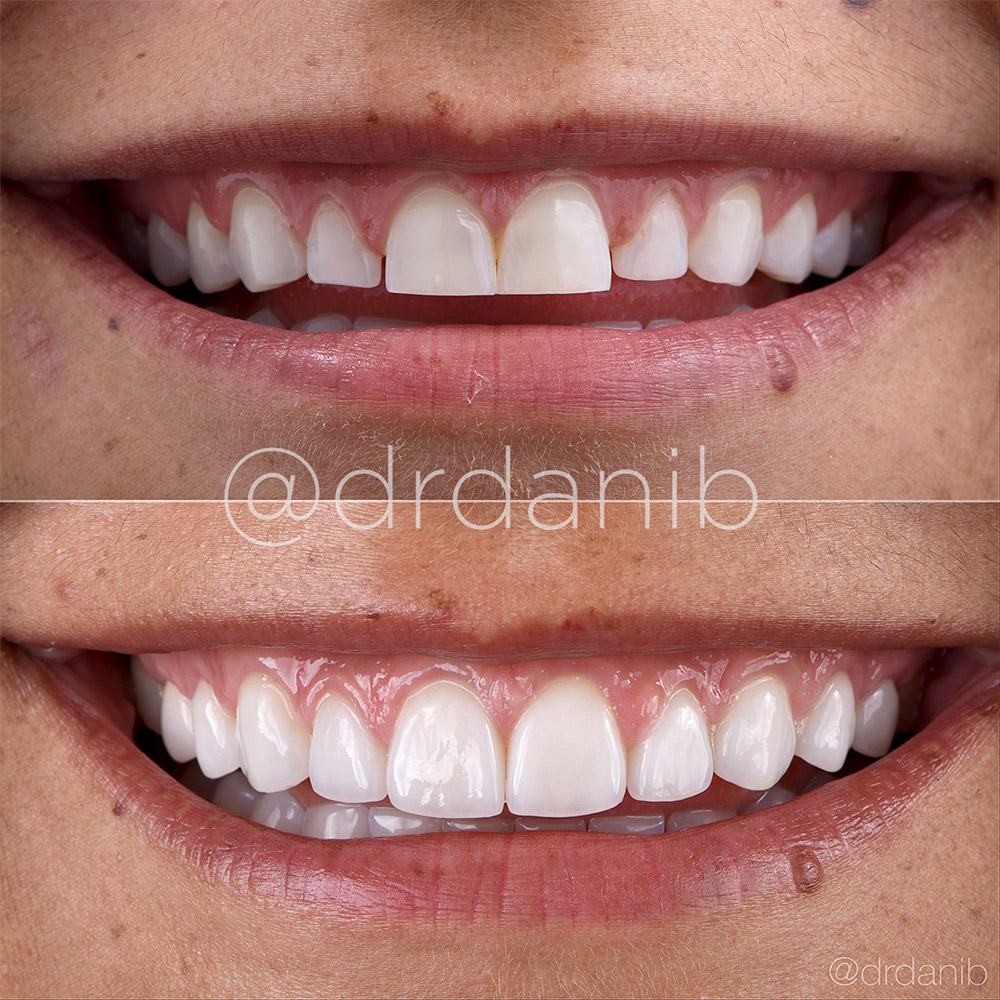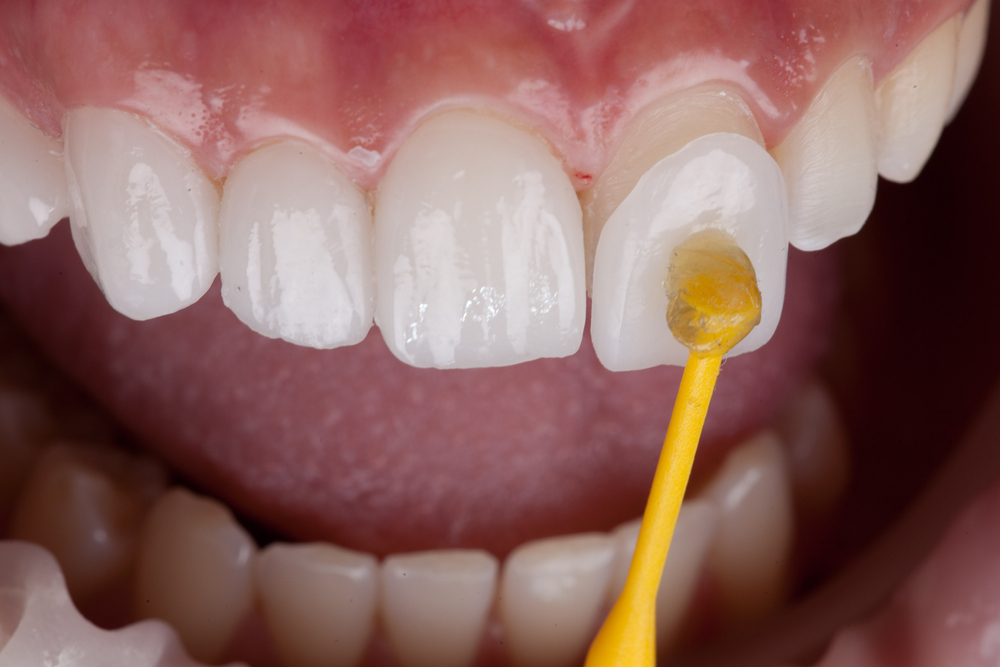Unlocking the Secrets of Veneers: Facts, Types, and Benefits for a Lovely Smile
Veneers offer a compelling service for those looking for to enhance their smiles. These oral improvements can deal with numerous imperfections, from discoloration to misalignment. With options like porcelain and composite, people can choose based upon their demands and preferences. Understanding the subtleties of veneers, consisting of application and treatment, is important. What variables should one take into consideration before choosing? The responses might amaze those interested in this aesthetic dental alternative.

Understanding Veneers: What Are They?
Veneers are thin, tailor-made shells made to cover the front surface of teeth, boosting their appearance. Usually crafted from long lasting materials, these shells are tailored to fit each person's teeth exactly. They offer multiple objectives, including fixing visual blemishes such as staining, chips, or gaps. The application procedure includes a dental professional preparing the teeth, typically by removing a tiny quantity of enamel to guarantee a snug fit. When prepared, the veneers are adhered to the teeth making use of a strong adhesive.
Patients frequently choose veneers for their capacity to create a natural-looking smile while supplying a resilient service to dental blemishes. Unlike various other aesthetic dentistry alternatives, veneers require minimal invasive procedures, making them a preferred selection. The outcome is an improved smile that can greatly improve a person's self-confidence and self-confidence. Generally, veneers provide a reliable technique to accomplishing an extra harmonious and appealing dental look.
Kinds of Veneers: Porcelain vs. Compound
When considering cosmetic dental choices, two key kinds of veneers attract attention: porcelain and composite. Porcelain veneers are crafted from a long lasting ceramic product that resembles the all-natural look of teeth. They are recognized for their stain resistance and capacity to reflect light likewise to natural enamel, giving a visual appeal that several clients need. The application process usually includes more prep work of the tooth structure and might require multiple sees to the dental professional.
On the other hand, composite veneers are made from a tooth-colored resin that is directly used to the teeth. This type allows for quicker application and can commonly be completed in a single visit. While they are cheaper than porcelain veneers, they might not supply the same long life or resistance to staining. Inevitably, the choice between porcelain and composite veneers relies on specific preferences, spending plan, and details dental demands.
The Advantages of Finding Veneers
Choosing veneers provides many advantages that can substantially boost both the visual appeals and performance of a person's smile. Among the primary benefits is their ability to correct flaws such as discoloration, gaps, and misalignment, leading to a much more consistent look. Veneers can also enhance the durability of teeth, offering a safety layer that shields them from damage.
Additionally, they call for minimal tooth prep work compared to other dental treatments, maintaining more of the natural tooth framework. This preservation adds to a healthier dental atmosphere while still attaining a spectacular smile.
Veneers are highly adjustable, permitting people to pick the shape, dimension, and shade that finest suits their preferences. Additionally, they are stain-resistant, making it easier to maintain a appealing and brilliant smile with time. In general, veneers present a reliable option for those seeking both cosmetic improvement and lasting oral health and wellness advantages.
The Veneer Application Process
The veneer application process entails several essential actions to ensure ideal results. A consultation is performed to examine the client's demands, adhered to by the preparation and shaping of the teeth. The veneers are bound in location, with adjustments made for a best fit and look.
Initial Appointment Tips
A thorough preliminary examination is vital for any individual thinking about veneers, as it establishes the structure for a successful treatment. Throughout this meeting, the oral professional examines the person's dental health and wellness, talking about any kind of existing concerns that could influence the veneer application. This assessment might include X-rays and a visual exam to figure out the problem of the teeth and periodontals.
The dental professional additionally engages the patient in a comprehensive conversation concerning their aesthetic goals, preferences, and expectations. They might present various veneer alternatives tailored to the person's certain requirements. Furthermore, the specialist discusses the treatment, potential dangers, and aftercare demands, ensuring that the individual is comfy and educated prior to waging the therapy.
Preparation and Shaping Teeth
After the preliminary appointment, the following phase involves the preparation and shaping of the teeth to suit the veneers. This vital step is executed by the dentist, who very carefully assesses the tooth structure to establish the amount of enamel that requires to be gotten rid of. Commonly, a thin layer, generally around 0.5 millimeters, is slashed off to assure an appropriate suitable for the veneers. Precision is vital throughout this procedure, as it impacts both the aesthetic outcome and the total convenience. As soon as the teeth are properly formed, impacts are required to create personalized veneers that straighten perfectly with the person's dental account. This precise prep work sets the phase for a successful veneer application, boosting both appearance and feature.
Bonding and Last Adjustments
Adhering to the shaping and prep work of the teeth, the bonding procedure starts, noting an essential phase in the veneer application. During this stage, an oral adhesive is used to the ready tooth surface, ensuring a strong bond between the veneer and the tooth. The dental professional thoroughly places the veneer, making adjustments to attain the preferred alignment and appearances. Once effectively placed, an unique light is made use of to treat the glue, strengthening the bond. After curing, the dental professional performs last changes, cutting any type of excess product and refining the veneer's form to ensure an all-natural look. This mindful attention to information boosts both function and looks, adding to an overall stunning smile that is sturdy and long-lasting.
Caring for Your Veneers: Upkeep Tips
Taking care of veneers is necessary to keep their look and durability. A regular daily cleaning regimen, conscious evasion of discoloring foods, and normal dental examinations are essential parts of effective maintenance. These techniques aid ensure that veneers continue to be in peak condition and remain to improve one's smile.
Daily Cleaning Regimen
Regularly keeping veneers is vital for their longevity and look. A correct daily cleaning regimen can assist protect their shine and protect against damage. Dental professionals suggest cleaning twice a day with a soft-bristled tooth brush and fluoride i thought about this tooth paste, ensuring that all surfaces are cleaned carefully to avoid scratching the veneer surface. Flossing everyday is also vital to remove food bits and plaque from in between teeth, where brushes may not get to. Additionally, utilizing an antimicrobial mouth wash can help maintain dental health without damaging the veneers. It is a good idea to prevent abrasive cleansers and tools that can damage the veneer. By following these simple steps, individuals can maintain their veneers looking beautiful while promoting overall oral health and wellness.
Avoiding Discoloration Foods
Veneers are created to enhance the look of teeth, their susceptibility to tarnishing demands cautious dietary click this site choices. It is necessary for individuals with veneers to be mindful of specific foods and beverages that can bring about discoloration. Dark-colored things such as coffee, merlot, and berry juices should be eaten in moderation, as they are understood to tarnish both all-natural teeth and veneers. Additionally, acidic foods like citrus fruits canister damage the bonding agents utilized in veneers, making them extra vulnerable to discoloration. To keep a brilliant smile, it is suggested to rinse the mouth with water after eating discoloration foods and to practice normal oral hygiene. These thoughtful choices contribute substantially to the durability and visual appeals of veneers.

Normal Dental Check-ups

Preserving the stability of veneers requires a commitment to regular dental exams, as these appointments play a vital function in guaranteeing their durability and look. During these visits, oral experts can assess the problem of the veneers, inspecting for any type of signs of wear, damage, or underlying oral issues. Additionally, regular cleansings aid remove plaque and tartar that can gather around the veneers, advertising general dental health and wellness. Dental practitioners can additionally give personalized recommendations on care techniques and items matched for veneer upkeep. By sticking to a schedule of exams, people can deal with possible problems early, guaranteeing their smile continues to be vivid and beautiful. Eventually, regular oral check outs are a vital element of veneer care.
Is Veneers the Right Choice for You?
Making a decision whether veneers are the right option typically depends upon specific oral needs and aesthetic goals. For those looking for to deal with problems such as discoloration, chips, or misalignment, veneers can supply a transformative solution. Candidates generally include individuals with healthy teeth but want an enhanced smile.
It is crucial to take right into account factors such as tooth enamel problem, the extent of oral concerns, and the desire to preserve veneers. Consulting with an oral expert is essential, as they can evaluate oral wellness and determine if veneers appropriate
In addition, prospective candidates ought to assess the long-lasting dedication, as veneers may require substitute every 10-15 years. Cost factors to consider additionally play a considerable function, as veneers can be a significant financial investment. Ultimately, the decision should be well-informed, balancing visual needs with functional considerations for long-term outcomes.
Often Asked Inquiries
For How Long Do Veneers Normally Last Prior To Requiring Substitute?
Veneers normally last in between 10 to 15 years before requiring substitute. Aspects such as dental hygiene, lifestyle options, and worldly top quality can affect their long life, making routine dental examinations essential for maintaining their condition.
Are Veneers Safe for Individuals With Sensitive Teeth?
Veneers can be secure for people with sensitive teeth, but it typically depends on the extent of sensitivity and the dentist's strategy. Consulting a dental specialist before proceeding is vital to ensure perfect results.
Can Veneers Be Gotten Rid Of or Changed Quickly?

Do Veneers Spot Over Time, and How Can I Avoid It?
Veneers can stain gradually, especially from foods and beverages like coffee or merlot. To click here for info avoid staining, maintaining excellent oral health, utilizing a straw for drinks, and normal oral cleanings are recommended practices.
What Is the Expense Array for Obtaining Veneers?
The price of veneers usually ranges from $500 to $2,500 per tooth, depending on aspects such as product kind, dentist experience, and location. Clients must consult with oral professionals for customized quotes and financing alternatives.
Once the teeth are properly shaped, perceptions are taken to produce customized veneers that straighten flawlessly with the client's oral profile. During this phase, a dental adhesive is applied to the ready tooth surface area, guaranteeing a strong bond between the veneer and the tooth. It is important to take right into account elements such as tooth enamel problem, the degree of dental problems, and the determination to preserve veneers. Veneers can be secure for people with sensitive teeth, but it often depends on the seriousness of sensitivity and the dental practitioner's strategy. The cost of veneers commonly ranges from $500 to $2,500 per tooth, depending on factors such as product type, dental professional experience, and area.